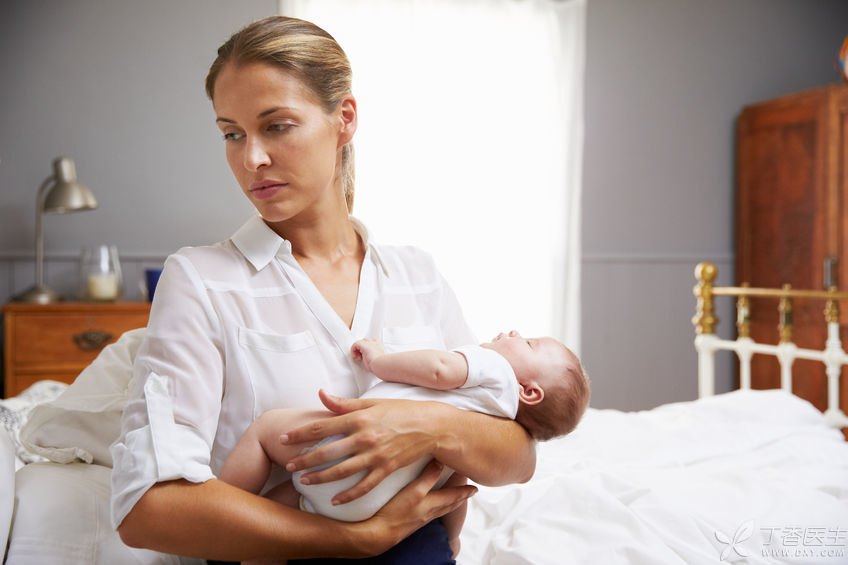
Many parents have doubted that their baby is not willing to sleep, can only sleep in arms, sleep for a long time… Don’t easily draw this conclusion, don’t label the baby like this. A lot of anxiety comes from not understanding, the following clove doctor will take you to interpret 8 common sleep phenomena first.
Phenomenon 1: The more sleepy the baby is, the more [he doesn’t want to
Adults are tired and know that they sleep. Shouldn’t babies be sleepy and fall asleep? Why is it more difficult to coax them to cry instead?
Almost all mothers have encountered the above problem. Research shows that the reason why children who are too tired show excitement, irritability, impatience and difficulty falling asleep is because chemicals in their bodies fight fatigue. Lack of sleep will cause the central nervous system to be highly awake, and waking too long and too tired will easily lead to crying before going to bed.
Therefore, when the baby is not very sleepy, it should be comforted and arrange the sleep environment. If the baby is allowed to [carry] for too long, it will be even more difficult to fall asleep.
Phenomenon 2: Babies Reverse Day and Night
There is a kind of pain, which is called [the darkness of the night is not understood during the day], and there is a kind of baby, which is called [noisy at night and sleeping during the day].
It is actually a very normal phenomenon that the baby’s sleep is reversed day and night.
If you think about it, babies are almost all asleep in their mothers’ stomachs. Only occasionally kick the stomach, after birth also have a while to sleep very dark, circadian rhythm needs a period of time to establish. Sometimes day even sleep 3, 4 hours do not wake up or get up too late in the morning, it is easy to happen day and night upside down, difficult to fall asleep at night, sleep 2 hours or even 1 hour after waking up, get up in the middle of the night to play and other phenomena.
In fact, at this time, keeping the amount of activity during the day, receiving sunlight, resting early at night, and keeping the room dark can help reduce the possibility of day-night reversal.
As you grow up, too bright a nap environment will stimulate more sensitive babies and affect their sleep during the day. In fact, keeping the room dark only during naps will not generally cause day and night to reverse.

Phenomenon 3: Wake up as soon as you release it
Waking up as soon as you let it go is a double test of mother’s spirit and physical strength…
During that time, almost two weeks in a row, I woke up after putting it down. I could only sleep with my baby on my pillow. My whole body was sore and weak. I didn’t know how I got through it.
The reason why babies within 3 months [wake up as soon as they are released] is related to their sleep rhythm.
Babies three months old, Will enter is about 20 minutes of shallow sleep first, so, if you fall asleep in the arms of adults, it is easier to wake up when you move to bed. Generally, after 20 minutes of deep sleep and then put or directly fall asleep in bed, reducing the steps of putting down can be relieved. After 3 months, falling asleep will enter deep sleep first, and the phenomenon of not being able to put down will improve.
For babies who are sleeping in their arms, the advice is: don’t sneak away when putting them down. Sometimes it is better to relax and tell them frankly [the mother should put the baby in bed to sleep]. When the baby is prepared, it is not easy to be frightened.
In addition, infants have a high proportion of light sleep, and it is normal to open their eyes twice or even cry twice during light sleep. Don’t misunderstand it as waking up, thus causing excessive interference to sleep.
Phenomenon 4: It seems that one has his own radar and wakes up as soon as one leaves.
It is slightly better than waking up for a long time (also torturing people) to wake up as soon as you leave.
Sometimes the baby has been asleep motionless for ten minutes, and I wake up as soon as I leave the baby, even if the noise is light… as if I have my own radar…
In fact, the same sound has different effects on people’s awakening. Whether they wake up or not is related to their psychological expectations. For example, at the same volume, they can often continue to sleep peacefully when they hear normal noises during sleep, while they often wake up immediately when they hear building fires.
In case of this kind of phenomenon, you must say hello to your baby. You need to tell him that this is a normal sound. For example, when you sleep at ease, your mother just gets up and does not go far.
Some mothers said that their children are extremely sensitive to sound. Sometimes when they turn over, the bed wakes up with a slight sound, so they have to hold back from turning over… they can try desensitization and demonstrate it to their children when they are awake to play:
When you sleep, your mother turns it over like this, and then the bed rings. You listen to this sound. Don’t be afraid. It’s normal.
Scene reappearance reproduces the source of sound and helps them not to associate such sound with fear.

Phenomenon 5: Wake up after half an hour’s sleep during the day
Many mothers are eager to take a rest during the baby’s fixed nap time during the day after going through the [night battle] of coaxing sleep and waking up at night, but the so-called weather is not what people want…
Very not easy to wait for the baby to fall asleep, oneself sleepy just came, the baby woke up, less than half an hour…
For babies, especially those in infancy, short daytime naps are related to their sleep cycle.
Baby’s sleep cycle is generally about 30-45 minutes, shorter than that of adults, and easy to wake up after the end of the cycle. The sleep cycle is gradually prolonged during 4-6 months, and will sleep longer at that time. After the sleep ability increases, it can also increase the sleep cycle contained in a single nap and prolong the nap time.
Sometimes, Parents tend to be preconceived, Think that the nap is half an hour to end, arrange to get up activities, instead of encouraging the baby to continue to sleep like waking up in the middle of the night. In fact, this time again coax baby can continue to sleep, long time, the child also did not wake up still need to continue to sleep consciousness, SO, nap short has become a habit. At this time, to want to let the baby sleep for a long time, it is difficult to mediate again.
Short nap time is affected by development stage and sleep habits, which is one of the biggest problems in sleep in the 6 months before birth. After eliminating human interference factors, it is still possible to sleep short due to physiological conditions. It is still necessary to be patient and calm to avoid excessive anxiety.
Phenomenon 6: Titch after falling asleep
Some mothers will suddenly twitch when they see their baby asleep and feel very scared, even if there is something wrong with the baby’s body.
In fact, baby brain development is not perfect, sleep control muscle movement of the brain is still part of active, intermittent twitch. The first 3-6 months can use swaddling clothes, hug pressure and other ways to relieve the impact of twitch on sleep, generally this phenomenon with growth self-healing.
However, it should be noted that some situations where vitamin D deficiency leads to low blood calcium level are also prone to twitch, and mothers should observe and investigate by themselves.

Phenomenon 7: Wake up at night on time (to watch)
The baby’s wake-up time at night is extremely fixed, appearing at about the same time every day, showing such [wake-up on the watch] as 1: 00, 3: 00 and 5: 00.
This is because the sleep cycle in infancy is about 45-60 minutes, and it is easy to wake up at the end of the cycle, so the interval is often half the hour.
However, my baby is already one and a half years old, and she still wakes up at night. She wakes up three times a night before she breaks the night milk. Later, she wakes up three times a night after she breaks the night milk cruelly. Moreover, at the same time, is her biological clock fixed?
This kind of night awakening involves habitual night awakening. The baby wakes up at this point for a period of time before. The biological clock cleverly remembers and tracks the previous situation. Today is still likely to be the case. If this happens, don’t worry, slowly adjust, and the baby’s biological clock will change.
However, not all watches wake up habitually at night, sometimes they are really hungry and so on, which requires the mother to judge for herself.

Phenomenon 8: Frequent Night Wake-up
Compared with the “regular disturbance” of waking up at night on time, the frequent waking up at night, which is not fixed, is even more a headache for mothers.
I didn’t know when she would wake up, so I had to wake up when Eva woke up. I was still nervous when Eva fell asleep. Just a little sleepy, the kid cried again…
Why does the younger the baby, the more frequent it wakes up at night? The baby’s stomach volume is very small, and it may be able to eat several mouthfuls at a time when it is just born, and it will be hungry after eating for 2 hours. This is the physiological factor of frequent night awakening in the early stage.
As babies grow up, hunger is no longer the dominant factor, especially the night awakening far less than the hunger cycle, which is more likely to be caused by inconsistent sleep environment and habitual night awakening.
Sleep props rely on the ability to wake up after falling asleep and fall asleep again. It is similar to adults looking at their cell phones before falling asleep. When they wake up in the middle of the night, they have to pull out their cell phones and take a look at what time it is now. They find that: [Oh, it’s only midnight] and then go back to sleep. If they can’t touch it any day, some people can go back to sleep, but others are likely to find it difficult to fall asleep next. This is a habit and psychological factor, and of course it is more complicated than adults.
There are many and complicated reasons why the baby wakes up at night and cries at night. Waking up at night does not mean hunger, excrement and urine, eczema, cold and hot, stimulation during the day, changing beds, people at home, mother going to work, learning to turn over, teething, and even mosquito bites may all wake up at night. Leave a few seconds to judge, don’t plug the nipple as soon as you wake up, patiently eliminate the reasons, and find countermeasures, so that the baby can sleep soundly.
